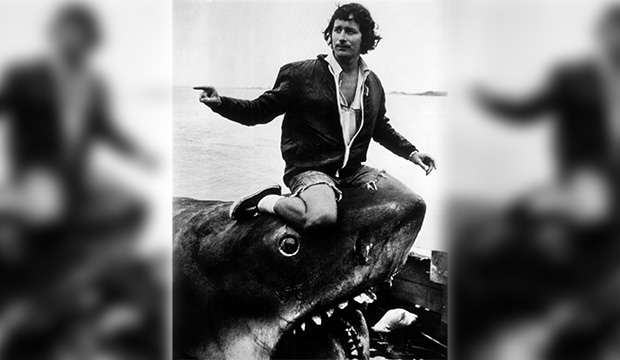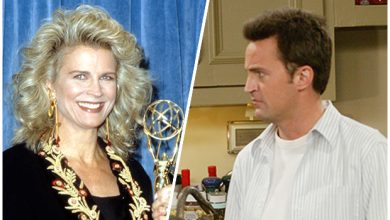Jaws at 50: Spielberg’s Oscar Snub and Its Impact

As Jaws celebrates its 50th anniversary, we reflect on the film’s groundbreaking impact and the Oscar snub that still resonates with its creator, Steven Spielberg.
‘Jaws’ Turns 50: Spielberg’s Oscar Snub and Its Lasting Impact
Steven Spielberg was undoubtedly disappointed when he learned he was not nominated for the Best Director Oscar for his groundbreaking shark thriller, Jaws. On the morning of Oscar nominations in 1976, the then 29-year-old was so confident that the blockbuster would be nominated in 11 categories that he filmed his reaction to the announcement.
“You’re about to see a sweep of the nominations,” Spielberg boasted in the footage, which has since become legendary thanks to the Media Burn Archive.
Reactions to the Nominations
Together with friends Joe Spinell and Frank Pesce, who were filming Rocky—which would win Best Picture at the subsequent Oscars—Spielberg watched the Best Director announcement on TV. The nominees included Federico Fellini for Amarcord, Stanley Kubrick for Barry Lyndon, Sidney Lumet for Dog Day Afternoon, Robert Altman for Nashville, and Miloš Forman for One Flew Over the Cuckoo’s Nest.
While this was a legendary lineup, Spielberg was shocked: “Oh, I didn’t get it! I didn’t get it! I wasn’t nominated. I got beaten out by Fellini!” Notably, Amarcord was the only film without a corresponding Best Picture nomination and had also won Best Foreign Language Film the previous year, allowing for its eligibility in 1975.
Consolation Prize?
When Jaws was announced as a Best Picture nominee moments later, it felt like a consolation prize to Spielberg. “Well, it’s about time,” he remarked, the sting of the snub still fresh. Spinell and Pesce expressed their frustration, likening it to the 1972 Oscars when The Godfather and Cabaret split the top categories.
“You cannot have the Best Picture unless the director is also nominated. Who made the picture?” Spinell stated. “The greatest picture of all time was made and they haven’t recognized the director,” Pesce added.
After learning from his assistant that Jaws was only nominated in four categories instead of the 11 he anticipated, Spielberg attributed the snubs to commercial backlash: “When a film makes a lot of money, people resent it. Everybody loves a winner, but nobody loves a WINNER.”
The Evolution of the Academy Awards
Much has changed with the Academy Awards in the 50 years since, but Spielberg’s theory still holds. Jaws revolutionized the movie business model and redefined box office success. However, high grosses do not always guarantee Academy recognition. At the time, many believed Jaws’ commercial success was sufficient for accolades, and even today, the Oscars often favor independent and artistic films over blockbusters.
See More ...
Back when there were only five slots for Best Picture, it took a perfect storm for box office hits like Titanic and The Lord of the Rings: The Return of the King to achieve golden sweeps, each winning 11 Oscars. The expansion of the Best Picture category to 10 nominees was largely due to the outrage over Christopher Nolan‘s 2008 blockbuster The Dark Knight being overlooked. Since then, more blockbusters have received nominations, including Black Panther, Top Gun: Maverick, and Dune, but few have been recognized in the directing category.
As Spinell questioned in that 1976 clip, “Who made the picture?”
Legacy of Jaws
Jaws won three of its four Oscar nominations, including Best Original Score for John Williams, Best Sound, and Best Editing. Spielberg has since accumulated 23 nominations, with nine for Best Director and two wins. While he may have felt disappointed 50 years ago, Jaws launched the career of Hollywood’s most commercially successful director.
Unfortunately, the Academy continues to overlook deserving directors. Don’t expect a revamp of the Best Director category to include more nominees; a lingering snobbery persists regarding the perception of art versus commerce, rarely allowing the two to intersect for voters. In the case of Jaws, history has proven the film’s immense value.
No disrespect to Fellini or Kubrick—both cinematic giants—but a half-century later, neither of their 1975 films holds the cultural significance of Jaws. “Amarcord at 50″ headlines just aren’t a thing.
Jaws remains an intense, suspenseful thriller about an unlikely trio attempting to stop a great white shark from claiming more innocent lives. Spielberg’s storytelling also critiques the complicity of local governments and the prioritization of corporate greed over human lives—issues that resonate even today.
Through his innovative camera work—establishing horror with underwater shots, split diopters, dolly zooms, and the iconic two-note score by Williams—Spielberg has influenced filmmaking for five decades. Jaws is timeless and unforgettable, and its Oscar omissions are truly unforgivable.




